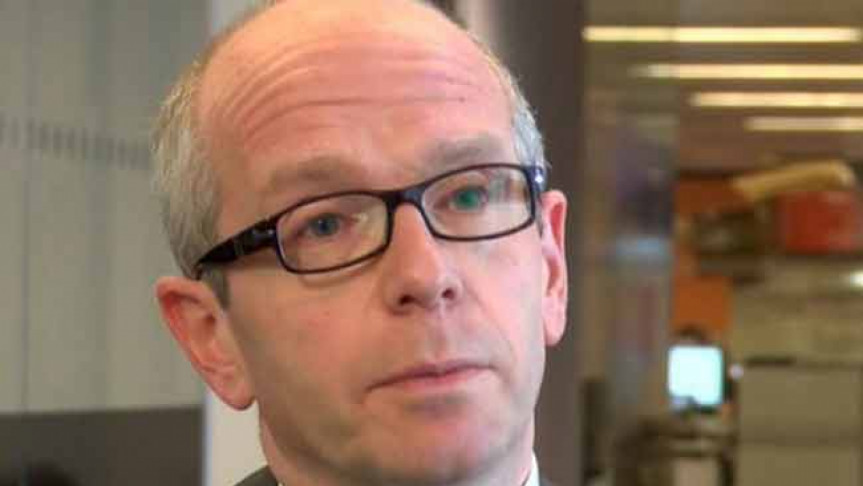Primark ramps up efforts to tackle worker exploitation in Turkey, Asia

London: British budget fashion chain Primark has ramped up checks on the factories it uses in Turkey to ensure Syrian refugees are not exploited as part of a growing company policy to ensure its workers are fairly treated.
Paul Lister, head of Primark’s ethical trading team, said the retailer known for cheap, high turnover fashion is on a mission to ensure its supply chain is ethical and workers are not exploited — and that consumers know about its efforts.
Primark has said little over the years as it faced accusations of using factories or ‘sweatshops’ in developing nations that employ what would be deemed slave labour in the West to sell T-shirts for as little as two pounds ($3).
But Lister said the time was now right for Primark to be more open about its policy to crackdown on worker exploitation and explain how it was able to sell clothes at such low prices.
Lister said the retailer has this year doubled checks on its 100 or so supplier factories in Turkey amid growing concerns about Syrian refugees who, without a right to work, were vulnerable to abuse.
Turkey is the third largest supplier of clothing to Europe after China and Bangladesh and the world’s biggest host of refugees including about 2.5 million Syrians.
‘We know Syrian refugees are an issue in Turkey at the moment so we have gone to unannounced audits in Turkey,’ Lister told the Thomson Reuters Foundation in an interview in Primark office’s overlooking an upmarket London square.
‘Turkey accounts for a small proportion of Primark’s product sourcing, but we take our responsibility for workers in our supply chain extremely seriously wherever they are,’ he said.
‘Wake-up call in communication’
Turkey has come under scrutiny for illegally employing Syrians including in a report earlier this year by corporate ethics watchdog, the Business and Human Rights Resource Centre.
Retailers including H&M, Next, C&A and Primark reported identifying Syrian refugees in their Turkish supply base and detailed their efforts to protect refugee workers as part of the report that questioned 28 retailers.
Lister said Turkey was home to about 100 of the 1,700 supplier factories that Primark uses globally, with worker conditions monitored at all factories globally by 2,500 audits a year and spot checks by his ethics team that will expand this year to 83 from 65.
He said the company had to be more open about its supply chain, particularly after the 2013 Rana Plaza disaster in Bangladesh in which 1,135 workers were killed when a complex of five factories supplying global brands - including Primark - collapsed.
‘Rana Plaza was a wake-up call in communication and the need to talk about (the supply chain),’ said Lister, who joined Primark’s parent company Associated British Foods in 2001.
‘We didn’t think we needed to demonstrate our ethics. Now there is a need to do so ... and we’ve been told we haven’t done a very good job in the past.’
Supply Chain Challenges
The United Nation’s International Labour Organization estimates there are 21 million victims of forced labour globally, with 56 percent of these in the Asia-Pacific region.
Lister is surprisingly frank about the challenges of working in the developing world and ensuring factories making clothes for Primark’s 290 stores in Britain, Europe and the United States - or spinners and cotton farms - are working ethically.
Asked how sure he could be sure there was no trafficking or slavery in Primark’s supply chain, Lister said: ‘You don’t know but I am not sitting here knowing of any that exists.
‘We know there are issues in sourcing out of the developing world ... so how confident am I that we can identify those issues? Very. Are we getting better? Yes, all the time.
‘But the further you get from the factory, the harder it becomes plotting your total supply chain.’
Lister said Primark worked hard to ensure it kept its prices low and this involved lean overheads, no advertising, placing big orders that achieved economies of scale, and high turnover.
‘We unashamedly want to be the best value ... but we do share 98 percent of these factories with other people - the same conditions, same pay, same workforce - so don’t ask us what we are so cheap but ask them why they are so expensive,’ he said.
Lister stressed that it is also important to see the benefits of working in the developing world.
He said the factories used by Primark employ about 750,000 people which impacted 2.4 million people factoring in families.
‘People are coming in from the farms to the factories, many illiterate, but using these factories as a means of educating their children which will alleviate poverty over time,’ he said.
‘If you believe that is a good thing - and I do - then we should be there and we should be dealing with the issues and I think the consumer generally believes this is the case as well.’
($1 = 0.7057 pounds)

 Reuters
Reuters




